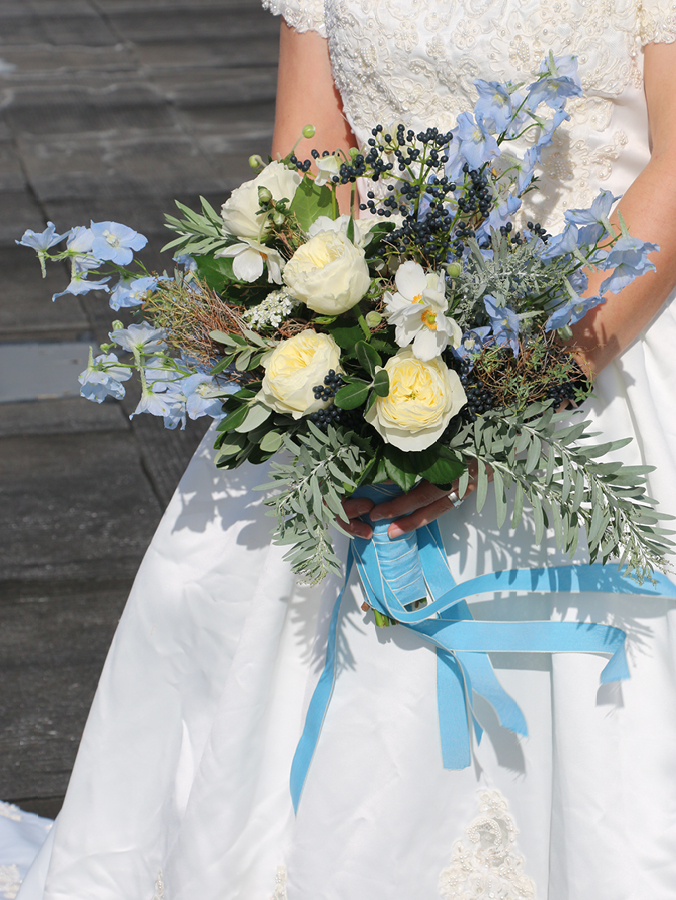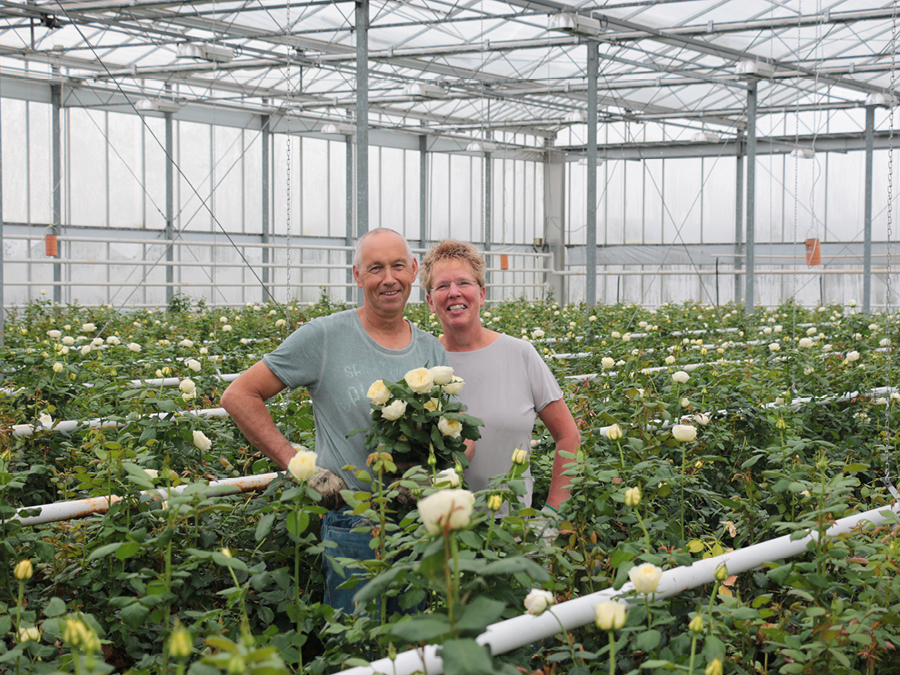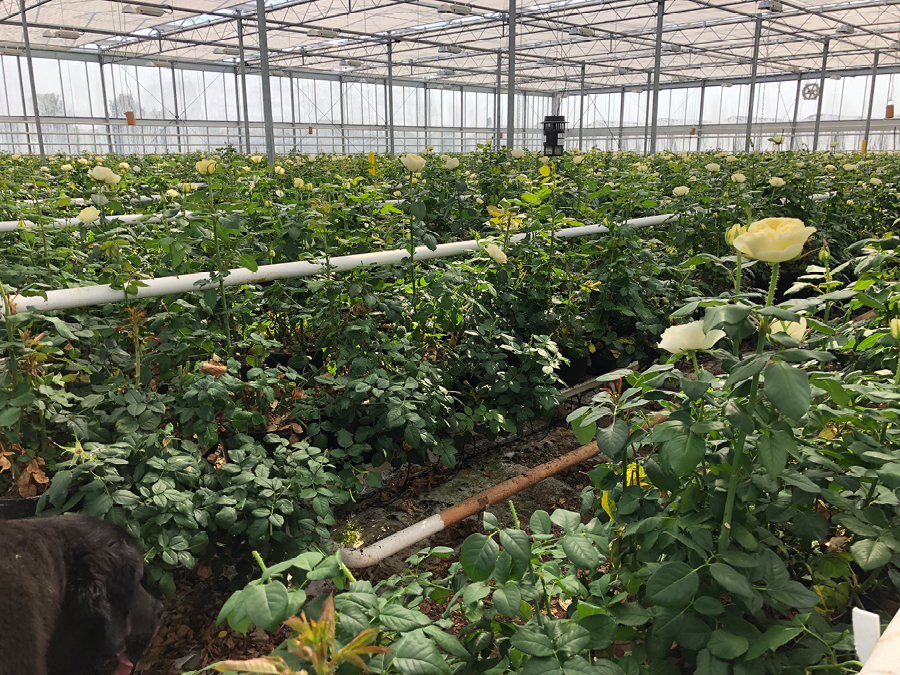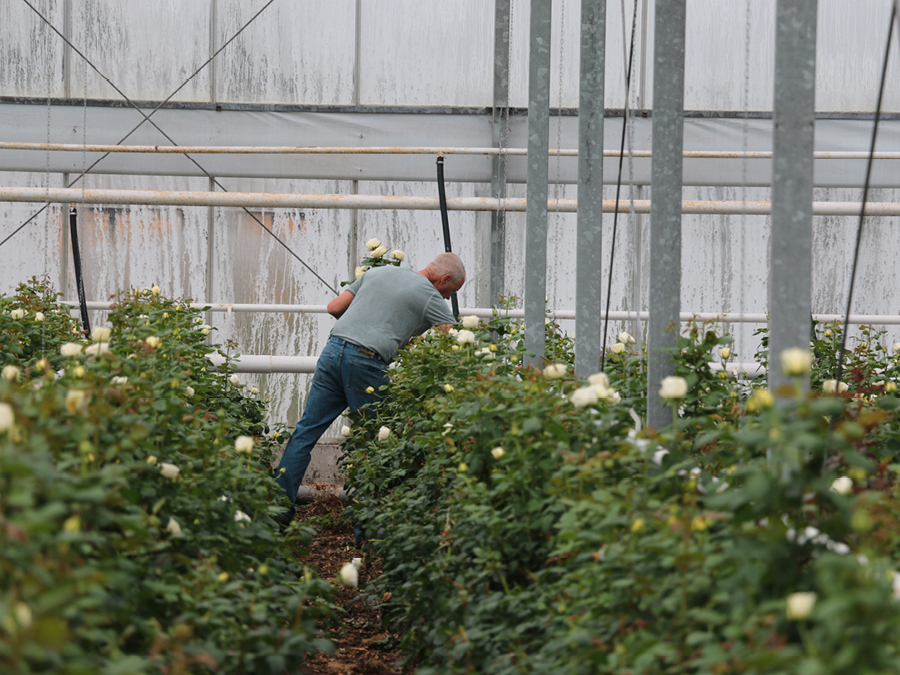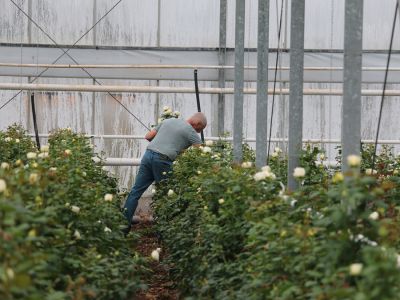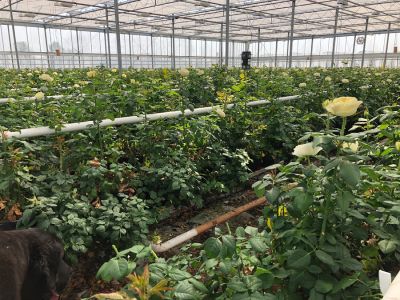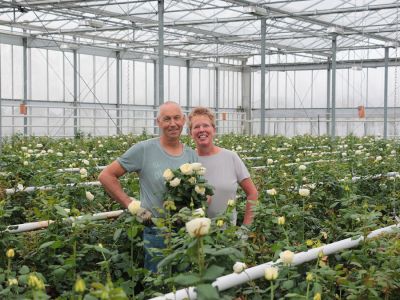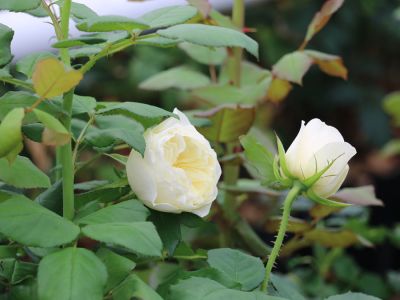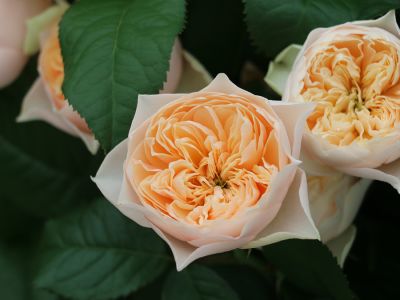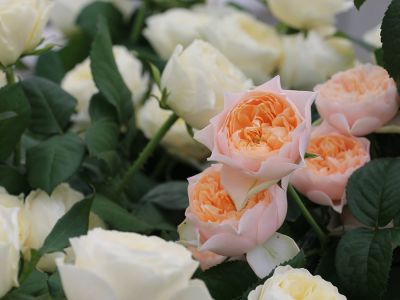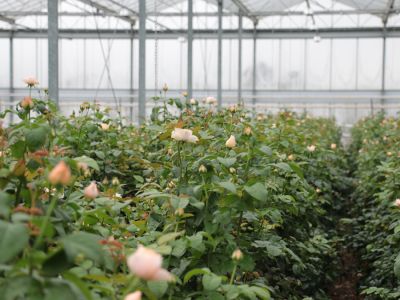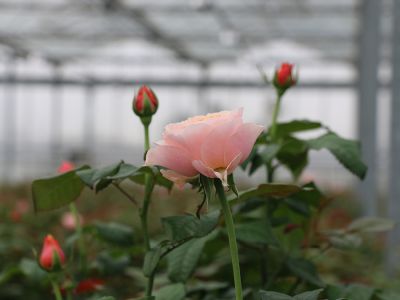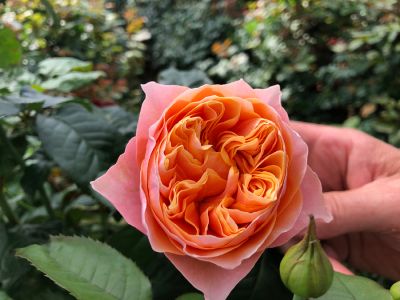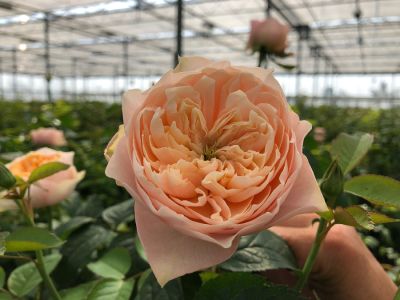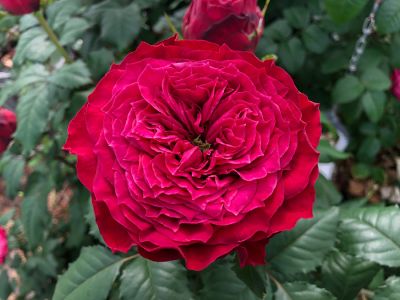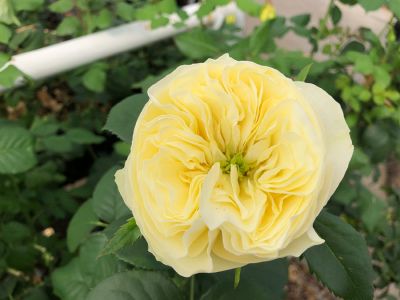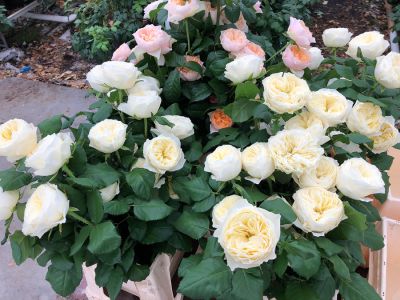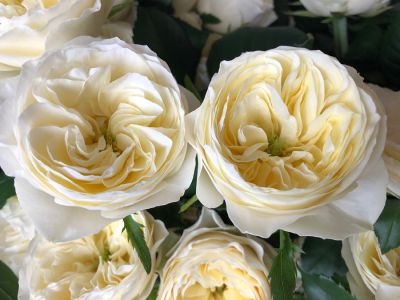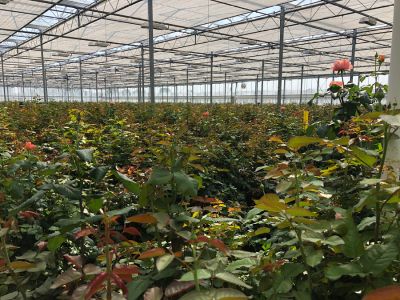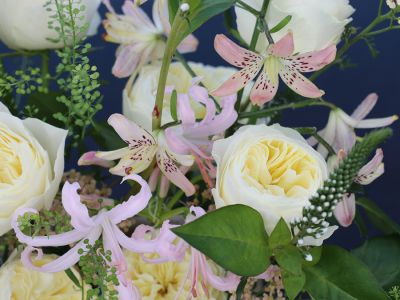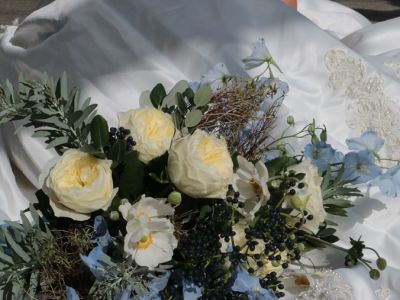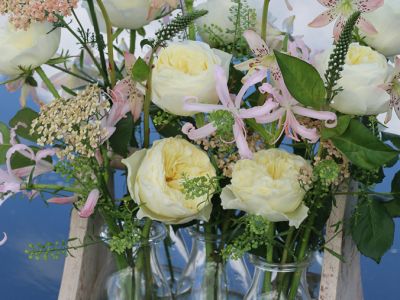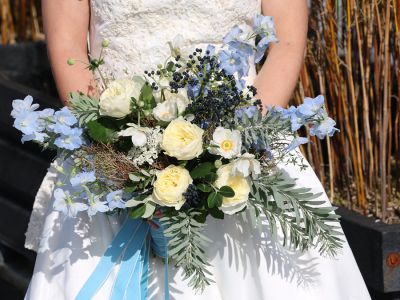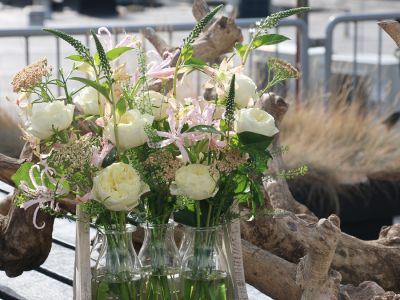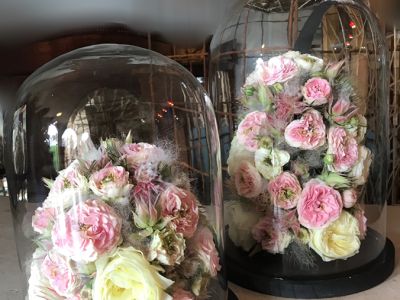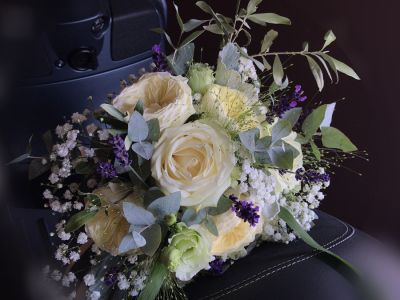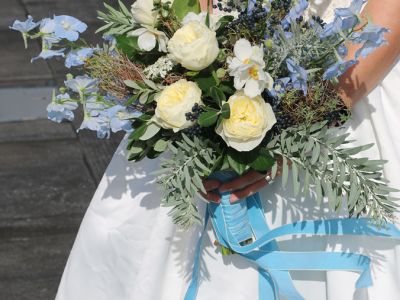Rosa White Vuvuzela
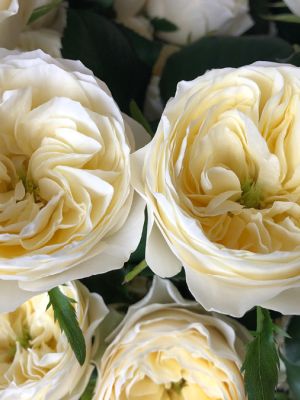
Calendar
In the spotlights
The vuvuzela is a popular wind instrument from South Africa, especially among football fans. After the football world championship in 2010, the instrument became known worldwide. FloraPodium is not so much interested in the instrument, but all the more to the colorful rose named after it. For this edition of FloraPodium we visited Charl and Irma at ‘De Vuurlinie’ nursery, as they introduced the third Vuvuzela variety to the market last year; the "White Vuvuzela", which they now cultivate for the second year. And of course we wanted to know more about this!
Garden roses
On the waterfront of Aalsmeer is a beautiful country house with a modest greenhouse, where different varieties of Vuvuzela roses bloom abundantly. The first, original Vuvuzela is a hard pink in colour with an orange heart. The variety distinguishes itself from other rose species because of its "quartered heart". In addition the middle part of the rose is twisted and the Vuvuzela gives of a soft sweet scent, making it very popular in bridal arrangements. Its scent gives just that little extra experience on such a special day.
The Romantic Vuvuzela is the mutation of the Vuvuzela. This variety is soft pink and soft orange in color. In addition to the Vuvuzela and the Romantic Vuvuzela Charl and Irma are growing the White Vuvuzela. this is not a mutation but a newly found species. Witch is now in its second year of cultivation.
Their own breeding
Charl and Irma spend a large part of their work on breeding roses. There are now three different types of Vuvuzela on the market that have been "found" and bred by Charl. In the meantime he is busy with a fourth Vuvuzela strain. This species is very new and has no name yet! The species has a purple exterior with a violet interior. A beautiful species, with a nice deep color. Despite the fact that they are grown in the greenhouse, we think the rose also fits perfectly in the "Garden rose" category. A great thing about all of the Vuvuzela varieties is that their shelf life is incredibly good, which cannot be said of all scented garden roses.
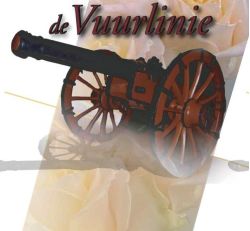
The cultivation
Charl and Irma van Dam jointly own the company "De Vuurlinie". As husband and wife, they arrange the entire cultivation themselves! They do not need extra hands to complete their cultivation. On 2500 m² they grow the three varieties of Vuvuzela in their greenhouse. In addition, there is an other greenhouse where the plant breeding completely takes place.
Cultivation and breeding
Almost 22 years ago, Charl and Irma took up the challenge and started this company together. Where many spray roses were grown at the time, this was gradually replaced by garden roses ten years ago. The garden roses came from our own breeding. The Vuvuzela was such a special product that the greenhouse could be filled with it.
The roses are grown from April to mid-November. In the winter, the greenhouse is prepared again for the next season. In addition, breeding is the main activity in the winter. The remaining rose hips are collected after the cutting season. The rose plants automatically produce rose hips after pollination. The seeds from these rose hips are used for breeding and new crossbreeds are being attempted. The rose hips are blown out and put in seed trays after crossing the different plants, after which they go into the cooling for about two months. In this way the cold period of the year is simulated.
These new varieties are then planted in the warm greenhouse. Charl and Irma mainly focus breeding on the bridal world. The requirements are that the species are separate and special enough to be used for this, and of course have a high enough quality. De Ruiter rose breeding picks up these varieties and ensures that they are tested at various parties. The moment they pass the test phase, they can be sold to other parties.
Growing on other strains
Charl and Irma stand to put a good quality and fresh product on the market. The roses are grafted onto a rootstock somewhere in the South of the Netherlands. This rootstock is from the Inermis, a wild rose. These stems give more vigor and ensure that the rose is stronger and gives a larger head. There are also disadvantages to this way of working. A plant produces fewer flowers. The plant, therefore, becomes less productive. But this does not outweigh the quality that the bush delivers. In the past all roses were grafted onto rootstocks, nowadays there are only a few growers who do this.
Durability
The company grows sustainably for more than 80%. With biological control, they keep most unwanted pests under control. In addition to the fact that there are few chemical agents available on the market, it also works a lot more pleasant. Nobody has to wear a suit to the garden to spray poison. The company is also sustainable because they have no production in the winter. The rose, therefore, remains more of a seasonal product. With some lighting and warmth, the season is only slightly extended at the beginning and at the end.
FloraPodium, 12 September 2019






